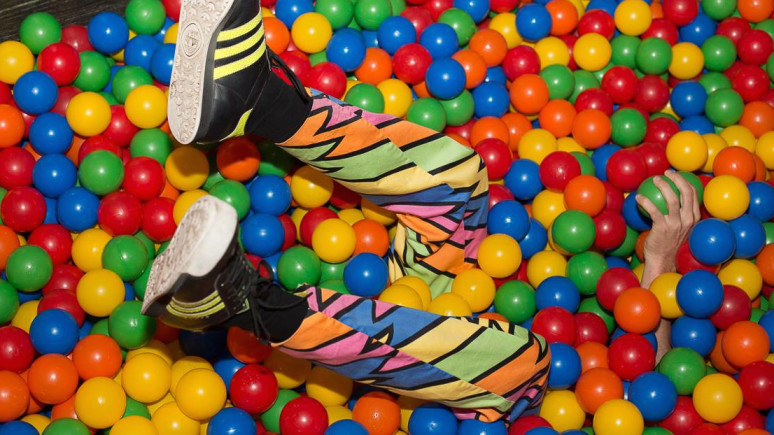Yellobric’s Gavin Paterson leads a huddle at Mindshare’s huddle for good.
Good is what you make it, it’s meaning is subjective and unique to you alone. Yellobric’s Mindshare huddle looked at how their view of “good” impacts on organisations, specifically charities. The debate asked if our assumption that charities are necessarily good is well founded and damaging.
You may expect certain things from a charity as a donor. That they spend as much of your donation on their, and now your, cause. The huddle established not only this but also that the huddlers wouldn’t be comfortable with a charity taking risks with their donation. On the face of it these seem reasonable, but what effect does this have on a charity’s ability to grow, to gain market share and become effective at address the big issues, filling the gap between market and state?
To address this question huddlers took a more Fun House approach in the second half of the session. Armed with colourful plastic balls, similar to those you are still finding behind the sofa from the 90’s, huddlers made their feelings plain in a to-and-fore ball-pit debate. One huddler championing a corporate and the other a charity, setting out their strategies to grow and gain market share within the context of our expectations. This demonstrated how charities have their arms tied when it comes to overheads, human capital, risk taking and long-term strategy. It was much fun, and resulted in injury only to one or two egos.
Why should we expect someone from the third sector be paid less? Why are modern business models like those employed by Uber out of reach for charities? We live in a global world with very few global charities. The reasons behind these truisms came into clear focus as the final ball fell; charities being aggressive in the market, taking risks and attracting the best talent is not acceptable to us.
The debate reduced to fundamentals; are the majority of the world’s problems derived from a lack of resource or technology. No. Nigeria is the 12 biggest oil producing country in the world, it gained independence around the same time as South Korea in the early 1960s. Nigerians aren’t more or less intelligent than Koreans, Nigeria has far greater resources and yet around 100 million people live below the poverty line in Nigeria. South Korea is a member of the G 20. So what gives? The huddle established by deduction that contrasting social frameworks must be the driving force along with inertia – an inability to improve these frameworks.
The biggest problems the educational charity Yellobric faces on the ground are social; teacher truancy, corruption, low aspirations and a lack of community. Social change has to be at the front of our thoughts when defining good both at a micro and macro level. If we want to effect social change in the developing world do we have to effect social change at home first?
Good is defined by the man in the mirror so make sure you give it some careful thought.
#MSHUDDLE #YELLOBRIC





